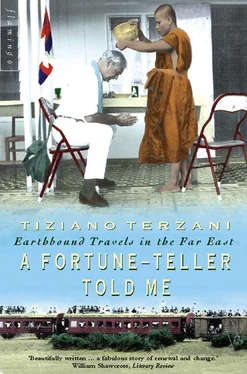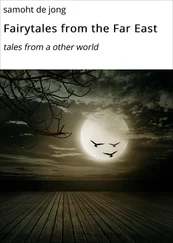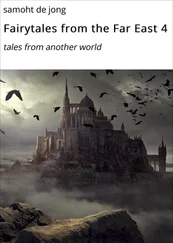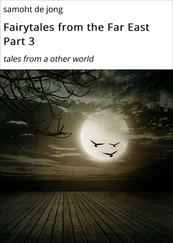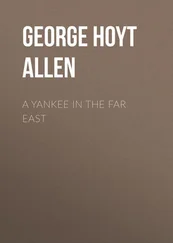Der Spiegel’s reaction obviously took a load off my mind, but still I did not finally commit myself to the plan. The prophecy would take effect at the beginning of the new year, and I intended to make my decision at the very last moment, the stroke of midnight on 31 December, wherever I might find myself.
Well, I was in the Laotian forest. My celebratory feast was an omelette of red ants’ eggs. There was no champagne to see the New Year in; instead I raised a glass of fresh water, and solemnly resolved not to yield for any reason, at any cost, to the temptation of flying. I would travel the world by any possible means as long as it was not a plane, a helicopter or a glider.
It was an excellent decision, and 1993 turned out to be one of the most extraordinary years I have ever spent: I was marked for death, and instead I was reborn. What looked like a curse proved to be a blessing. Moving between Asia and Europe by train, by ship, by car, sometimes even on foot, the rhythm of my days changed completely. Distances became real again, and I reacquired the taste of discovery and adventure.
Suddenly, no longer able to rush off to an airport, pay by credit card and be swept off in a flash to literally anywhere, I was obliged once again to see the world as a complex network of countries divided by rivers and seas that required crossing and by frontiers that invariably spelt ‘visa’ – a special visa, what is more, saying ‘surface travel’, as if this were so unusual as to cast suspicion on anyone who insisted on it. Getting from place to place was no longer a matter of hours, but of days or weeks. I had to avoid making mistakes, so before starting out I pored over maps. No longer were mountains beautiful, irrelevant frills seen from a porthole, but potential obstacles on my way.
Covering great distances by train or boat restored my sense of the earth’s immensity. And above all it led me to rediscover the majority of humanity whose very existence we well-nigh forget by dint of flying: the humanity that moves about burdened with bundles and children while the world of the aeroplane passes in every sense over their heads.
My undertaking not to fly turned into a game full of surprises. If you pretend to be blind for a while, you find that the other senses grow sharper to compensate for the lack of sight. Avoiding planes has a similar effect: the train journey, with its ample time and cramped space, re-animates an atrophied curiosity about details. You give keener attention to what lies around you, to what hurtles past the window. In a plane you soon learn not to look, not to listen: the people you meet, the conversations you have, are always the same. After thirty years of flying I can recall precisely no one. On trains, on Asian ones at least, things are different: you share your days, your meals and your boredom with people you would otherwise never meet, and some of them remain unforgettable.
As soon as you decide to do without planes, you realize how they impose their limited way of looking at things on you. Oh, they diminish distances, which is handy enough, but they end up diminishing everything, including your understanding of the world. You leave Rome at sunset, have dinner, sleep a while, and at dawn you are in India. But in reality each country has its own special character. We need time if we are to prepare ourselves for the encounter; we must make an effort if we are to enjoy the conquest. Everything has become so easy that we no longer take pleasure in anything. To understand is a joy, but only if it comes with effort, and nowhere is this more true than in the experience of other countries. Reading a guidebook while hopping from one airport to another is not the same as the slow, laborious absorption – as if by osmosis – of the humours of the earth to which one remains bound when travelling by train.
Reached by plane, all places become alike – destinations separated from one another by nothing more than a few hours’ flight. Frontiers, created by nature and history and rooted in the consciousness of the people who live within them, lose their meaning and cease to exist for those who travel to and from the air-conditioned bubbles of airports, where the border is a policeman in front of a computer screen, where the first encounter with the new place is the baggage carousel, where the emotion of leave-taking is dissipated in the rush to get to the duty-free shop – now the same everywhere.
Ships approach countries by slowly and politely entering the mouths of their rivers; and distant ports become long-awaited goals, each with its own face, each with its own smell. What used to be called airfields were once a little like that. No more. Nowadays airports have the false allure of advertisements – islands of relative perfection even amid the wreckage of the countries in which they are situated. They all look alike, all speak the same international language, that makes you feel you have come home. But in fact you have only landed at the outskirts of a city, from which you must leave again by bus or taxi for a centre which is always far away. A railway station, on the other hand, is a true mirror of the city in whose heart it lies. Stations are close to the cathedrals, mosques, pagodas or mausoleums. On reaching them you have well and truly arrived.
Despite the limitation of not flying, I did not stop doing my job, and I always managed to arrive in time where I needed to be: for the first democratic elections in Cambodia, for the opening of the first line of communication – by land! – between Thailand and China via Burma.
And that summer I did not forgo my annual visit to my mother in Italy. I travelled the historic route by train from Bangkok to Florence: over thirteen thousand miles, passing through Cambodia, Vietnam, China, Mongolia, Siberia and so on – a journey which in itself was not exceptional in the slightest, only that nobody had done it for a long time. It took a month, accompanied by the clickety-clack of the wheels and the varied whistles of different countries’ locomotives, to cross what still looks on the map like a small fraction of the earth.
I returned to the East from La Spezia, this time with my wife Angela, in a battered ship of the Lloyd Triestino line, by the great classical route through the Mediterranean, the Suez Canal, the Red Sea, the Indian Ocean and the Straits of Malacca to Singapore. We were the only two passengers on board. The rest was a cargo of two thousand containers and a very Italian crew of eighteen men.
If I had not invented the excuse of the fortune-teller, I would have done nothing of all this, and 1993 would have been a year like so many others, without one of the events that signal the passage of time.
How many great stories can there be in the life of a journalist? One or two, if he is lucky. I have already had my share of such luck: I was in Saigon in the spring of 1975 when the Communists arrived and ended the Vietnam war, which for my generation was what the Spanish Civil War had been for the generation of Hemingway and Orwell; and in the summer of 1991 I was in the bowels of the USSR when the Soviet empire fell to pieces and Communism died. Perhaps one day, if I am really lucky, I may have a chance to witness another great event, but until then I have to sharpen my curiosity on things that are less obvious, less striking.
With the decision not to fly I also took another, a logical extension of the game. I decided that wherever I might go that year I would seek out the most eminent local fortune-teller, the most powerful sorcerer, the most revered oracle or seer or visionary or madman of the place, ask him to look into my future, and try to learn something of my fate.
They came in all shapes and sizes. Every meeting was a new adventure, and along the way I collected dozens of warnings and much wise advice about how to live, as well as oils, amulets, pills, powders and prescriptions guaranteed to protect me from various dangers. I carried them all with me, and at the end of the year I was weighed down with gadgets, little bottles and paper packets. The power of each was linked with some taboo that had to be observed on my part: in every system, religious or otherwise, the dispensation of a benefit is always indissolubly connected with some effort to be made, some merit to be gained. An excellent principle, I believe, though in practice I was forced to limit my performance of these ‘duties’.
Читать дальше
